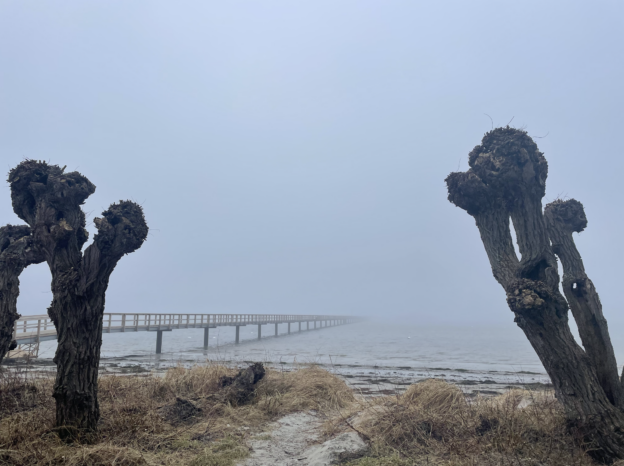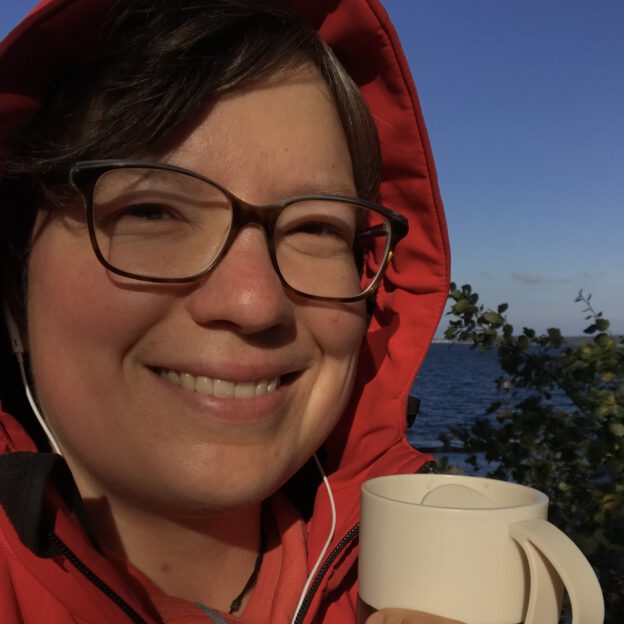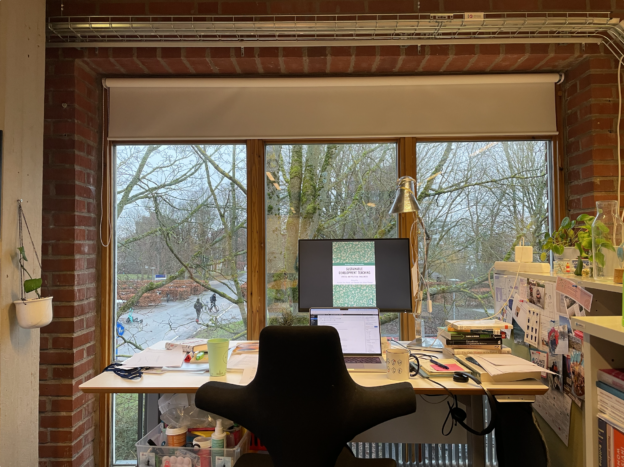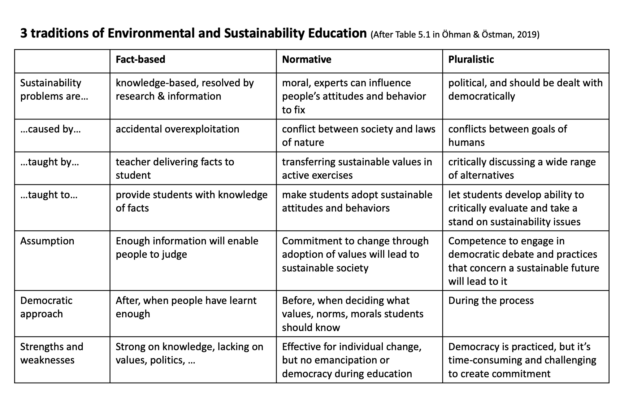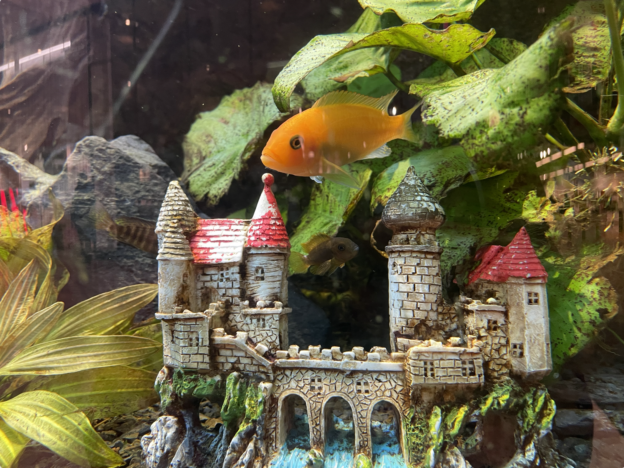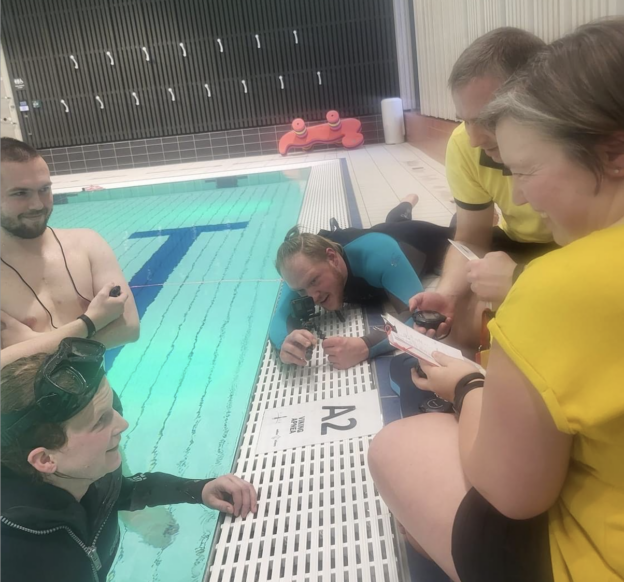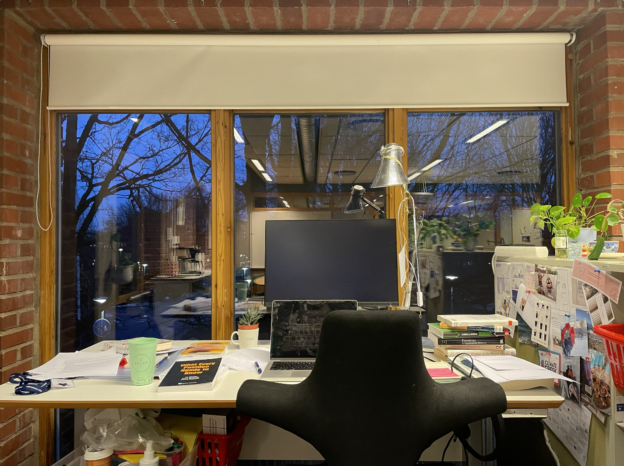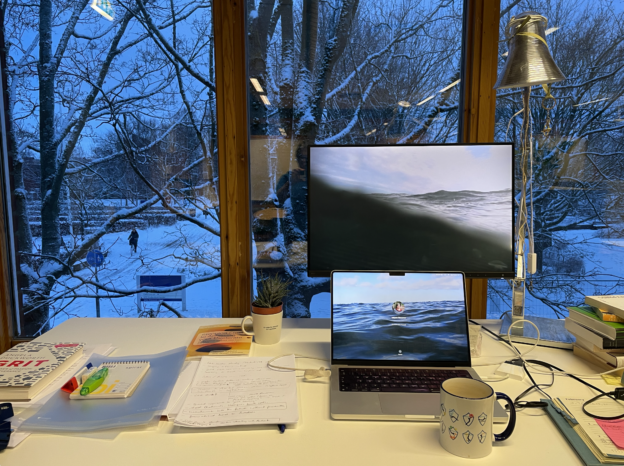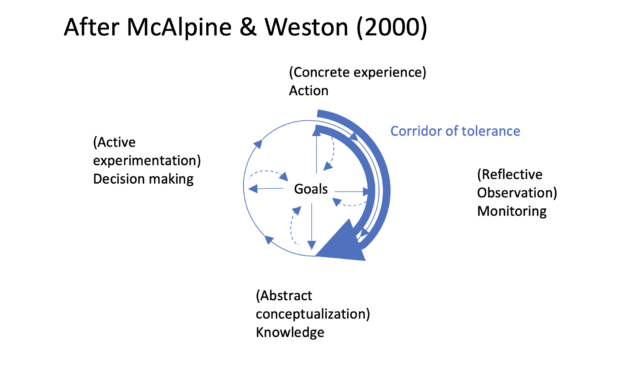I am teaching the course “teaching sustainability” again in March, and while my course has a very applied focus on the questions teachers bring themselves into it, I have been looking around at how other places teach similar courses. I saw that the course in Stockholm assigns the book “Sustainable Development Teaching – Ethical and Political Challenges”, edited by Van Poeck, Östman, Öhman (2019). The book is supposedly focussed on teaching practice, translating educational research into something that is directly useful for teachers, and I recognized one of the names from my favourite Head-Hands-Heart framework, so I decided I had to make time to read the book. Below my summary of their
PART I: Education and the challenge of building a more sustainable world
Continue reading →
